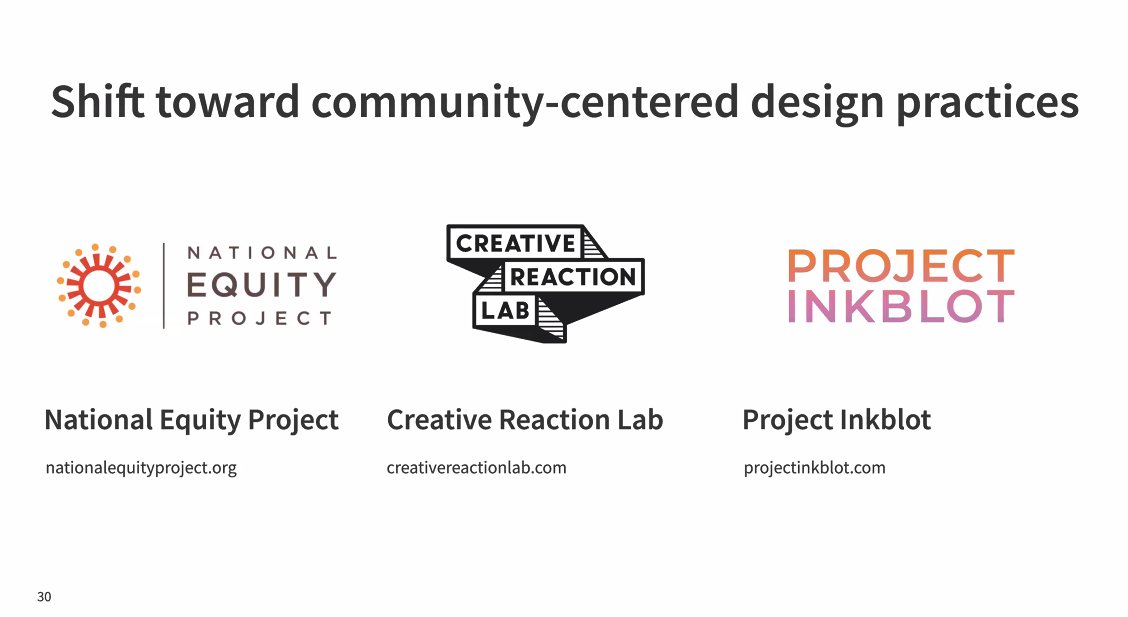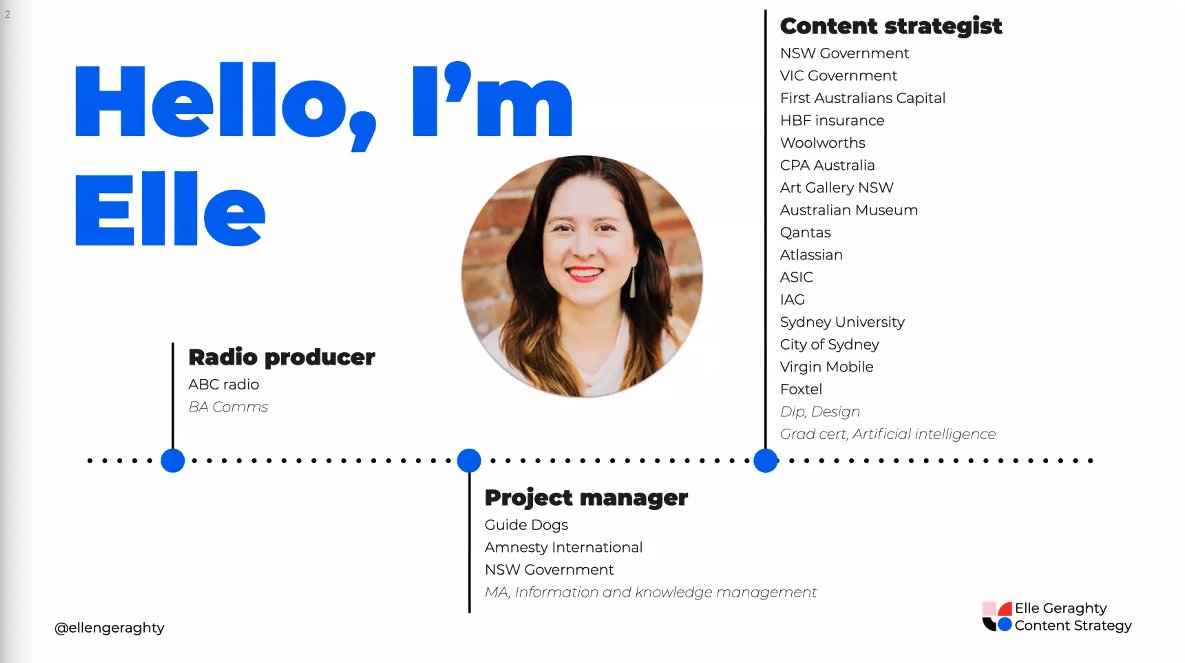
The keynote for today is Steven Wakabayashi (@wakuu) Founder and Director of Stranger Creative & @QTBIPOCdesign
—
Design Thinking for Building Equitable Teams
#UXA2021 #uxaustralia
—
Design Thinking for Building Equitable Teams
#UXA2021 #uxaustralia
QTBIPOC Design offers free and accessible design education to LGBTQ+ designers of color so they can have all the things necessary to enter the design industry.
When Steve's family got their first computer he was enamoured with it and eventually got his hands on a copy of photoshop and flash which opened up a world of design to him.
As Steve prepared himself to go into college as a good asian child would he studied to become a doctor, he decided to go on a gap year before applying for medical school and went back to his passion of design.
He was working as a graphic designer to pay for his education and decided to pursue development and design as a career.
Steve is going to share with us one of his lowest points in his acreer.
Working nights, weekends, having benders with clients at agencies and no sleep — his body collapsed and he was admitted to hospital for 3 months.
Working nights, weekends, having benders with clients at agencies and no sleep — his body collapsed and he was admitted to hospital for 3 months.
His health was continuously spiralling out of control and he was coming to terms with the potential end of his life. Fueled by 'do do do' energy where he couldn't see his health falling apart.
He was able to make a dramatic shift in his health by using a holistic Eastern and Western approach and taking up meditation, not as a way to work more, but a way to come to terms with his situation.
Steve decided to leave his tech career in San Francisco and travelled the world to study meditation practices. He came back understanding what he wanted to do in the world.
One of those things was QTBIPOC Design — lifting up marginalised groups
One of those things was QTBIPOC Design — lifting up marginalised groups
Some of the work that's come out of it, Yellow Glitter, writing for Queerty and events.
Focussed on topics he didn't see written about often.
It helped to shepherd his own internalised healing.
Focussed on topics he didn't see written about often.
It helped to shepherd his own internalised healing.

Lesson 1.
Stop working so hard. LOL
What we want to create is sustainable practices.
Sustainability and rest are core components of activism and change to ensure we thrive of months, years and generations.
Stop working so hard. LOL
What we want to create is sustainable practices.
Sustainability and rest are core components of activism and change to ensure we thrive of months, years and generations.
If we chose to fight inequity with inequity to ourselves we will burn ourselves out and not be able to help anyone else.
We saw this when the industry dropped out of DE&I pledges.
After years of doing this work it's wearing and tearing down the people DOING the work.
After years of doing this work it's wearing and tearing down the people DOING the work.

We all have to create a foundation we can build upon, and that practice is being conscious of your own energy.
Lesson 2.
Your journey and discovery of identity is key towards your individual activism.
You become a conduit for change for people like you or who have lived experience like you.
Your journey and discovery of identity is key towards your individual activism.
You become a conduit for change for people like you or who have lived experience like you.
By sharing all of this experience, growth and lessons we can usher in unique ways of growing, learning and finally dismantling these inequitable systems around us.
SO how do we focus this on our teams?
Diversity, Equity & Inclusion show up a lot BUT they are not interchangeable.
Diversity is the marker of the differences that exist in a space.
While you can have diversity it might not be equitable or a good experience.
While you can have diversity it might not be equitable or a good experience.
Inclusion is the way we invite people into a space and the effort you're putting in to invite specific people and communities in the space.
If it's a blanket "inclusion" you're inviting in the biggest group which may not be a great experience for other groups.
If it's a blanket "inclusion" you're inviting in the biggest group which may not be a great experience for other groups.
Equity is about the redistribution of power — if you're going to make a space equitable what resources or power do you need to provide in a space to make an equitable experience for people from different communities 

Our liberation and feel safe and be treated equally shouldn't be rooted in the necessity to bring a company money.
People deserve to be treated well.
People deserve to be treated well.
SO if there's so many good points why we should be doing more DE&I work, why are we so bad at it?
We don't acknowledge the inequitable cultures that exist.
Tokenisation: We have diverse candidates hired and we put them on a pedestal they didn't ask to be on and are representing a WHOLE community.
Tokenisation: We have diverse candidates hired and we put them on a pedestal they didn't ask to be on and are representing a WHOLE community.

For young emerging talent often they just want to fit in and be part of a team rather than being the voice of a community.
D/E/I start with our current culture!
Lesson 3.
No matter the DEI quota or intent, inequitable culture leads to poor retention.
Our focus should first address systemic cultural patterns.
No matter the DEI quota or intent, inequitable culture leads to poor retention.
Our focus should first address systemic cultural patterns.
There's been a lot of good critique about Design Thinking — where we put so much emphasis on the designers in these methodologies and their bias creeps in.
To shift the paradigm of the Top-down approach to a Community Bottom-up approach.
How are we understanding each other?
How are we iterating on solutions together?
How are we reinforcing practices together?
How are we understanding each other?
How are we iterating on solutions together?
How are we reinforcing practices together?

Ground ourselves
Understand each other
Take practices that are working and build on top of it
Reinforce using positive feedback loops of equitable actions and behaviours we want
Understand each other
Take practices that are working and build on top of it
Reinforce using positive feedback loops of equitable actions and behaviours we want

The Model
1. Centre in community-first approach
1.1 — 1:1 meetings to assess individual needs
1.2 — Identify gaps within teams
1.3 — Establish guiding principles & goals
1.1 — 1:1 meetings to assess individual needs
1.2 — Identify gaps within teams
1.3 — Establish guiding principles & goals

2. Create safe spaces for dialogue
2.1 — Establish safe spaces
2.2 — Seek to understand
2.3 — Create emptiness
2.4 — Invite healthy banter & braveness
2.1 — Establish safe spaces
2.2 — Seek to understand
2.3 — Create emptiness
2.4 — Invite healthy banter & braveness

Increasing pipeline of diverse candidates
1. Build long term relationships with local community organisations
2. Co-create with educational institutions
3. Connect with recruiters focussed on recruitment and placement of diverse talent
1. Build long term relationships with local community organisations
2. Co-create with educational institutions
3. Connect with recruiters focussed on recruitment and placement of diverse talent

Lesson 4.
Creating equity and dismantling the system of inequity is a lifelong process.
If we all took a small deliberate actions today, tomorrow would be a whole new world.
Creating equity and dismantling the system of inequity is a lifelong process.
If we all took a small deliberate actions today, tomorrow would be a whole new world.
Extra Slides: Why should I care?
Our job is to design. Not make art.
Design is about solving problems for myriad communities.
Our job is to design. Not make art.
Design is about solving problems for myriad communities.
We have the tools to design better.
They are:
Diversity
Equity
Inclusion
They are:
Diversity
Equity
Inclusion
DEI is not a resource issue, nor is it for an individual or ERG (Employee Resource Group) to solve an entire company
Lesson 6
DEI is a group effort that requires consisten actions from every one of us.
Our liberation is intertwined with each other.
DEI is a group effort that requires consisten actions from every one of us.
Our liberation is intertwined with each other.
Lesson 7.
In the system of inequity, we are ALL losing.
In the system of inequity, we are ALL losing.
Ask yourself:
Am I ready to be liberated?
Am I ready to truely design with diverse perspectives and experiences?
Am I ready to be liberated?
Am I ready to truely design with diverse perspectives and experiences?
Audience Q's:
One of the main blockers to the inclusion is "professional" and "appropriate" go unchallenged — how do we change the meaning of these words?
One of the main blockers to the inclusion is "professional" and "appropriate" go unchallenged — how do we change the meaning of these words?
A: They place certain value on the current state and ignore or reinforce systems of inequity — ask, do we really need these to be able to show up for work?
Q: How do you tackle "cultural fit"?
A: It hides a lot of context, what does culture mean? If our culture is inequitable to begin with they won't fit into that inequity. Go back to ask what are the gaps in the team rather than how do yo uphold the culture of the team.
A: It hides a lot of context, what does culture mean? If our culture is inequitable to begin with they won't fit into that inequity. Go back to ask what are the gaps in the team rather than how do yo uphold the culture of the team.
!!NOTE!! I have broken this thread and will be retweeting it after the next talk in actual order :D
@threadreaderapp unroll
• • •
Missing some Tweet in this thread? You can try to
force a refresh













